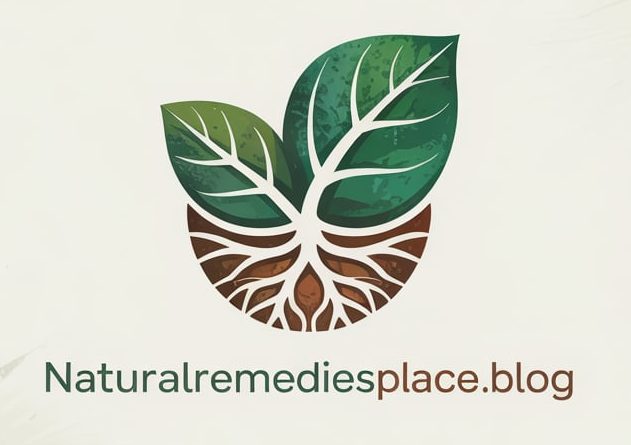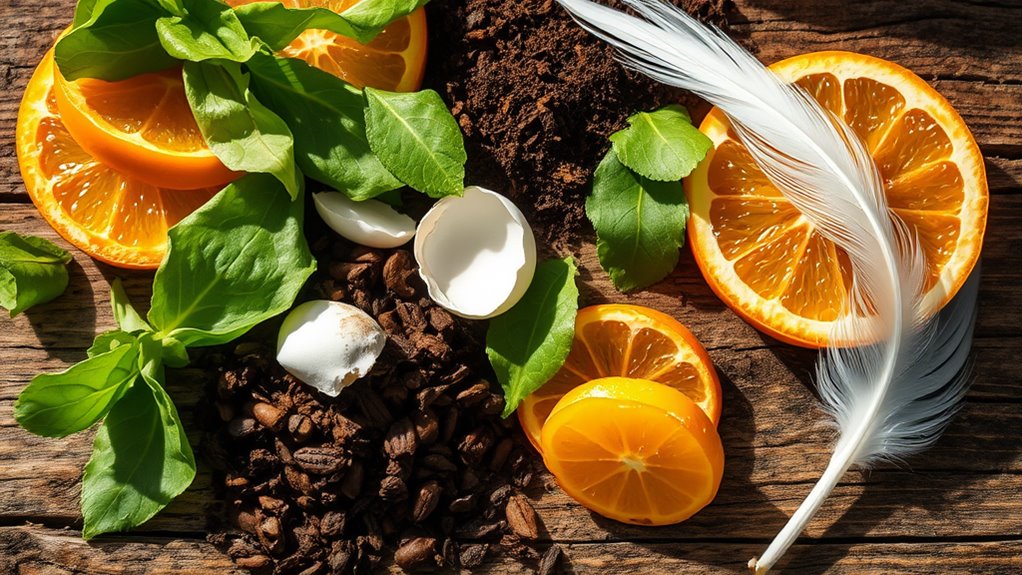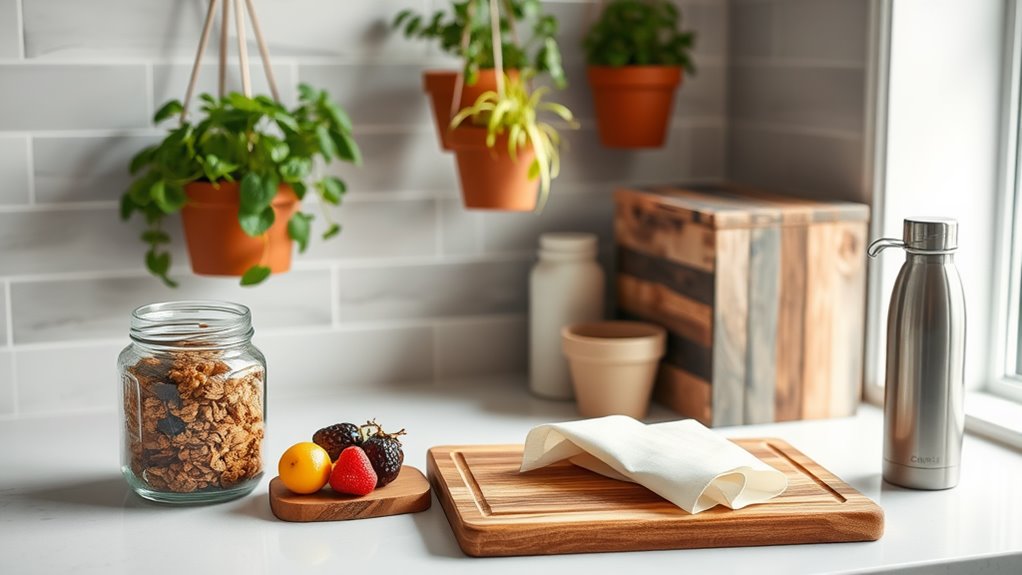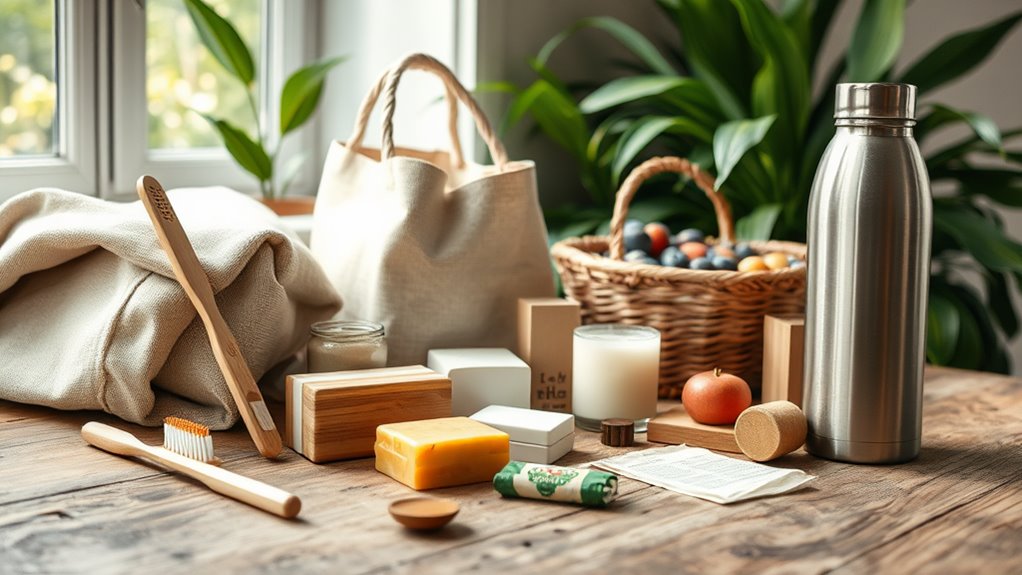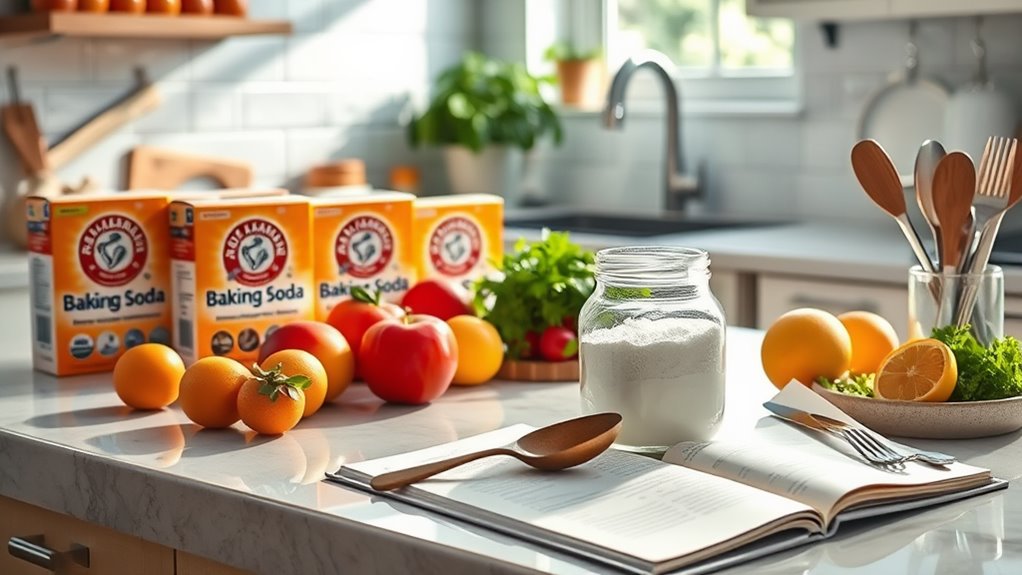10 Things You Didn’t Know You Can Compost
Hair and Fur
Hair and fur can be valuable additions to your compost pile. They’re rich in nitrogen, helping to balance your compost mix.
If you’re embracing a zero waste lifestyle, consider collecting hair from haircuts or shedding fur from pets. Just make sure to chop it into smaller pieces to speed up decomposition.
Your compost will thrive, and you’ll reduce waste effectively!
Paper Products
While you might think of paper as waste, it can actually be a great addition to your compost pile.
Shredded newspaper, cardboard, and paper towels help create a balanced carbon-to-nitrogen ratio. Just avoid glossy or heavily inked papers.
Cotton and Wool Fabric
If you’re looking to expand your compost contributions, consider adding cotton and wool fabric.
These natural fibers break down over time, enriching your compost pile. Just make sure they’re untreated and free from synthetic blends.
Cut them into smaller pieces for faster decomposition. Using old clothing or scraps not only reduces waste but also boosts your garden’s health.
Give it a try!
Eggshells
Eggshells are a fantastic addition to your compost bin, packed with nutrients that enrich your soil.
They help balance the pH levels, making your compost healthier for plants.
Let’s explore how to incorporate them into your composting process effectively.
Nutrient-Rich Fertilizer
Crushed eggshells can be a fantastic addition to your compost pile, providing crucial nutrients that enrich the soil.
They’re rich in calcium, which helps strengthen plant cell walls and promotes healthy growth. Just rinse and crush them before adding to your compost.
Over time, they break down, releasing nutrients that your plants will love, boosting their vigor and overall health.
Ph Balance Benefits
Maintaining the right pH balance in your compost is essential for healthy plant growth, and eggshells play a key role in this process.
When you add crushed eggshells to your compost, they release calcium carbonate, which helps neutralize acidity. This boosts nutrient availability and promotes beneficial microbial activity.
Composting Process Tips
When you incorporate eggshells into your composting process, you’re not just adding a natural calcium source; you’re also enhancing the overall health of your compost.
To get the finest results, crush the shells before adding them. This speeds up decomposition and guarantees nutrients are readily available.
Don’t forget to balance them with nitrogen-rich materials for ideal composting success!
Coffee Grounds and Filters
Coffee grounds and filters are a fantastic addition to your compost pile.
They not only enrich your soil with essential nutrients but also help balance your kitchen waste.
Plus, composting those paper filters is a simple way to reduce what goes to the landfill.
Nutrient-Rich Soil Amendment
Although you might drink your coffee for the boost it gives you, those used grounds can greatly enhance your garden’s soil.
They’re rich in nitrogen, making them an excellent addition to your compost. Just sprinkle the grounds into your garden or mix them with your compost pile.
Your plants will thrive, benefiting from the nutrients and improved soil structure coffee grounds provide.
Composting Coffee Filters
Used coffee filters, like the grounds themselves, can also play a significant role in your composting efforts.
They’re typically made from biodegradable paper and break down easily in your compost pile. Just toss them in along with your coffee grounds.
Together, they add valuable nitrogen and carbon, creating a balanced mix that helps speed up the composting process.
Happy composting!
Balancing Kitchen Waste
Balancing kitchen waste is essential for successful composting, and incorporating coffee grounds and filters can greatly enhance the process.
These materials add nitrogen and improve the texture of your compost. Just remember to mix them with carbon-rich items like dried leaves or cardboard.
This balance creates a healthy compost environment, speeding up decomposition and yielding nutrient-rich soil for your garden.
Nutshells
When you think about composting, don’t overlook nutshells, as they can be a valuable addition to your compost pile.
They’re rich in carbon, helping balance nitrogen-rich kitchen scraps. Just make sure to crush or break them down to speed up decomposition.
Almond, walnut, and pecan shells are great choices, but avoid salted or flavored varieties to keep your compost healthy.
Potted Plants and Soil
Potted plants thrive best in nutrient-rich soil, making it crucial to choose the right mix for their needs.
You can compost leftover potting soil or spent plant materials to enrich your mix. Just make certain the compost is well-aged and free from pathogens.
Adding this compost improves drainage and provides valuable nutrients, helping your potted plants flourish and stay healthy.
Wooden Toothpicks and Sticks
When you’re composting, don’t overlook wooden toothpicks and sticks—they can actually benefit your compost pile.
To make the most of them, you’ll need to prepare the sticks properly before adding them in.
Let’s explore how these small wooden items can enhance your composting efforts!
Benefits of Composting Wood
Wooden toothpicks and sticks are often overlooked in composting, but they can offer significant benefits to your pile.
They provide essential carbon, balancing the nitrogen-rich materials you add. As they break down, they create air pockets, improving aeration and drainage in your compost.
Plus, they help retain moisture, ensuring a healthy environment for microbes to thrive.
Don’t underestimate their contribution!
How to Prepare Sticks
Adding sticks and wooden toothpicks to your compost can enhance its quality, but preparing them properly is key to maximizing their benefits.
Break larger sticks into smaller pieces to speed up decomposition. Rinse wooden toothpicks to remove any food residues.
Avoid treated wood, as it can introduce harmful chemicals. By following these steps, you’ll guarantee your compost remains healthy and nutrient-rich.
Dryer Lint
Though often overlooked, dryer lint can be a valuable addition to your compost pile. It’s primarily made of natural fibers like cotton and wool, which break down easily.
Just be cautious; avoid lint from synthetic materials, as these won’t decompose properly. When adding it, mix it well with other materials to maintain balance and aeration in your compost.
Corn Cobs
After incorporating dryer lint, consider adding corn cobs to your compost pile.
These tough, fibrous materials break down slowly but provide valuable carbon to your compost. Just chop them into smaller pieces to speed up decomposition.
Remember, they’re best balanced with nitrogen-rich items like kitchen scraps.
With time, corn cobs enrich your soil, making it healthier for future plants.
